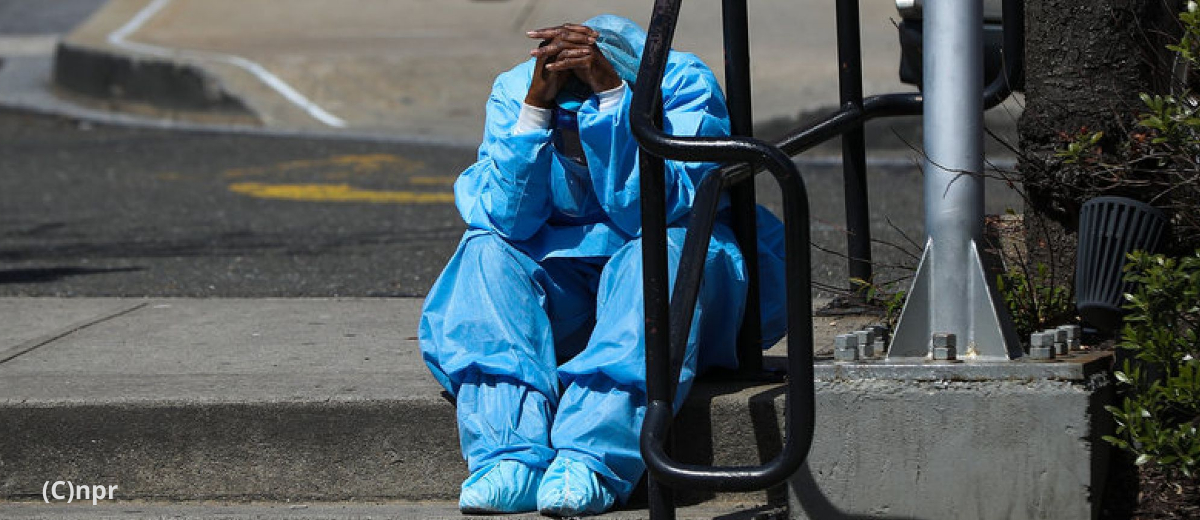
(C)npr
Last updated on September 28th, 2021 at 09:18 am
The COVID-19 pandemic is severely affecting the mental wellbeing of the healthcare workers as they fight the disease at the forefront. As per reports, half of UK’s health professionals are suffering from mental health disorders including trauma and stress as they deal with the global crisis.
Notably, besides the physical risks the frontline workers are exposed to in the fight against COVID-19, there are facing many psychological. Many of these workers have reported that they are facing challenges in the process ranging from physical (like fatigue and illness) to mental (fear, withdrawal, guilt). Burned out, overworked, fear of transmission, many of these healthcare workers isolate themselves to protect their friends and families from the infections. Dealing with tragedies in one form or the other at the hospitals on an everyday basis adds to the struggle during the treatment of infected patients.
Psychologists believe that the treatment of COVID-19 patients in the hospital has taken a serious emotional toll on the medical staff and there is going to be prominent post-traumatic stress among these health professionals if the pandemic prolongs. Some of the mental health issues can stay with the medical staff even after the curve is flattened across the world.
In a study focusing on the mental health of healthcare workers exposed to Coronavirus in China, it has been found that a significant proportion of medical workers reported symptoms of depression, anxiety, insomnia, and distress after they have treated COVID-19 patients. These factors were much higher in nurses and female healthcare workers.
In several countries, healthcare workers and other hospital staff are testing positive for the virus as they continue to treat the patients. In the United States, more than 9,300 healthcare workers have come in contact with the disease and over 30 workers have died due to the virus. In India, over 200 health professionals across the country have tested positive for Coronavirus and many hospitals have been sealed to contain the transmission of COVID-19. In Italy, 20% of healthcare workers were infected while responding to the disease, and some have died. This further makes the healthcare workers even more exposed to mental disorders as they try to find a balance between doing their duty and protecting themselves and their loved ones.
In order to address the elephant in the room, experts have called for the protection of frontline workers amid the battle against COVID-19 pandemic. Special interventions are required to protect the mental wellbeing of the medical protections exposed to the virus. Teams of healthcare workers can help to look out for each other. Some governments are addressing the crisis and working to mitigate the mental toll Coronavirus is taking on the health workers. For instance, San Francisco has launched a program offering short-term mental health and counseling services for all health workers. The Welsh government has announced a free mental health support service for doctors to provide support and advice for all front-line NHS Wales staff during the COVID-19 pandemic.







